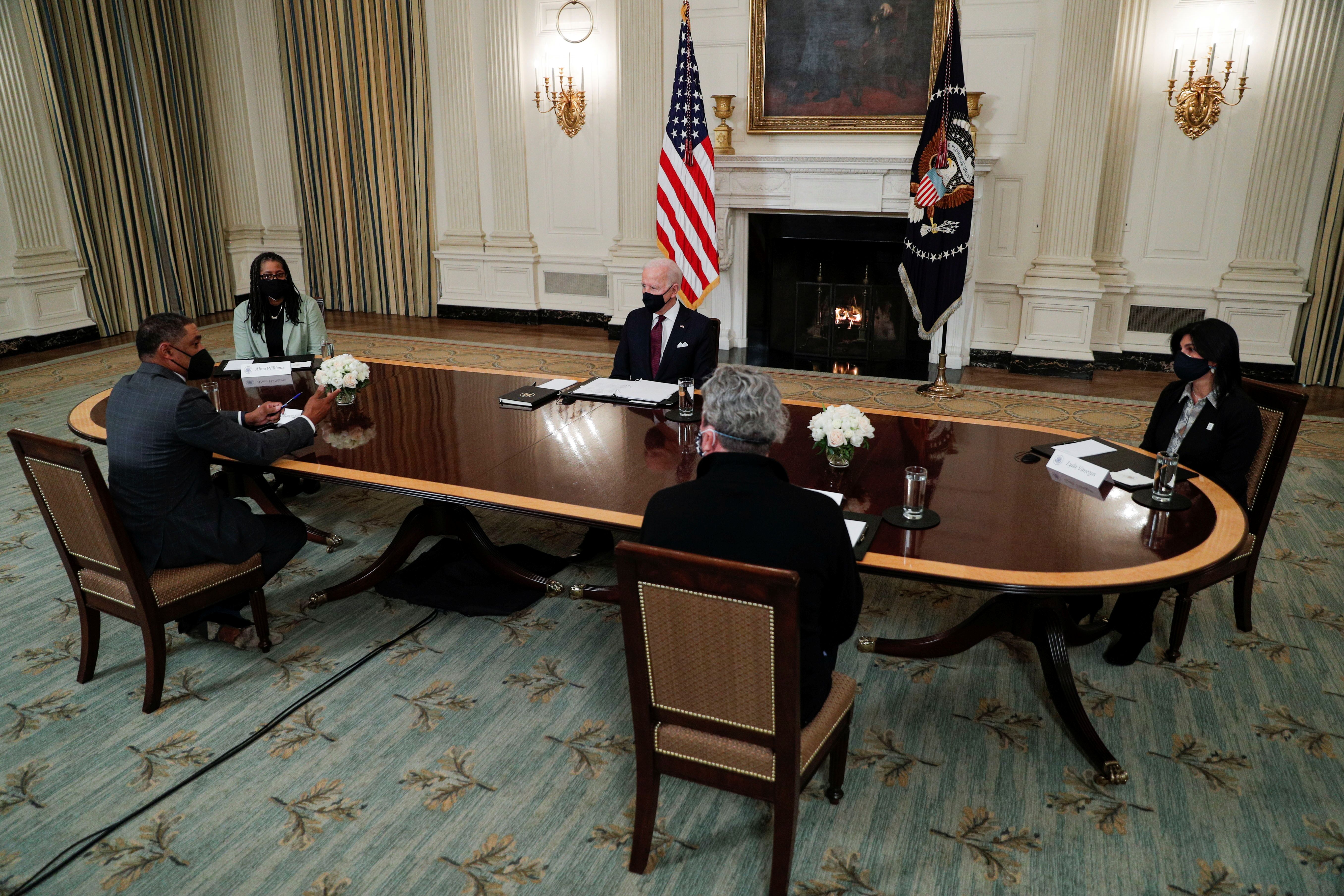Main Assumptions of the New U.S. Administration’s National Security and Foreign Policies

The guidance prepared by the National Security Council (NSC) staff and signed by the president is the first document of its kind. Traditionally, in the changeover of presidencies there is much more continuity and a bi-partisan understanding of the national interests and global role of the United States, which results in a rather slow review and conclusion of a new NSS. This tradition in U.S. national security policy—like the inner workings of the Council itself—was seriously disrupted by Trump’s presidency. The Biden administration concluded that it needed some interim guidance. Also atypical was the speech by the new secretary of state because it was first and foremost rhetorically addressed to U.S. citizens.
National Security Assumptions
The INSSG obliges departments and agencies responsible for national security to follow it until the finalisation of the new NSS. This also demonstrates that the full transition to official and expert staff at the NSC has been fully completed by the White House. The text of the INSSG wholly reflects the policy vision formulated in the August 2020 Democratic Party platform, with many parts prepared at that time by a team directed by Blinken. The INSSG initiates further work and decisions in the State Department and Department of Defense regarding the full set of strategic documents. The continuity of thinking among the president’s advisors suggests rather fast preparation of the new NSS, which will depart from Trump’s strategy and its declared “America First” policy. Progress on this main document will move in parallel to regional and functional reviews by the White House and State Department. The NSS will be expanded by joint conclusions of the White House and Pentagon in the National Defense Strategy, Nuclear Posture Review, and Missile Defense Review. The INSSG is mentions that work has already started on the U.S. Global Posture Review, whose conclusions will be important for NATO allies and multi-year military planning.
The strategic approach presented in the INSSG links issues of national security with global security, leaving little space for specific geographic regions or individual states. It indicates first and foremost the threats from the COVID-19 pandemic, climate change, cybersecurity, world economy instability, humanitarian crises, extremism and terrorism, and proliferation of weapons of mass destruction. The text also stresses threats to democratic values, institutions, and states by authoritarian powers. The INSSG recognises China as the sole U.S. rival with the economic, diplomatic, military, and technological power to destabilise the global order. Russia is recognised as determined to engage in a similarly destabilising role, however without the capabilities seen from China. The document equates both powers’ activities to limit American influence, and in later parts describes China as “assertive” and Russia as “disruptive”. The INSSG also mentions the dangerous capabilities of Iran and North Korea, referring indirectly to their nuclear potential, although their programmes are at different stages of development. The list of state-directed threats is not very different from those identified by previous administrations but is described in different wording and in the assumed approach to them, showing a departure from the sharp rhetoric of the Trump administration. The INSSG should not be seen as a full catalogue or analysis of threats to U.S. security. Soon, an unclassified threat assessment should be presented to Congress by intelligence leaders. Although typically presented annually, it should be noted that during Trump’s last year in office it was shielded, in part because of the inconvenient warnings about the likely scale of the COVID-19 pandemic.
American Diplomatic Priorities
The speech by the secretary of state expanded on and explained parts of the INSSG on the national security priorities of the new administration. Blinken’s declared audience was U.S. citizens, however there were also many clear signals for external audiences. His message was reinforced by the fact that since 2002 he has been one of Biden’s closest advisors on international affairs. The administration is declaring that its diplomacy will serve the security of Americans, democratic values, and their economic wellbeing. Both the INSSG and the speech assumed that to protect these it is necessary to regain American leadership in alliances, cope with climate change, and end the pandemic. Also in the interests of Americans will be protection of democracy in the U.S. and around the world, efforts to solve global issues, securing women’s, religious, and LGBTQI+ rights. U.S. diplomacy will again work to strengthen the United Nations and other international organisations—“however imperfect” the U.S. finds them. All these elements are part of the United States’ return to its basic values and global leading role, summed up as “America is Back”. The secretary of state, following the release of the INSSG, also declared the U.S. approach will favour diplomatic methods, with military force America’s last instrument of power.
Blinken’s speech explained the necessity for a renewed relationship with allies and partners. It was another, albeit indirect, clear indication of the end of the transactional approach of Trump to allies in various regions. The guidance recognises the need to “reaffirm, invest in, and modernise” alliances, mainly NATO, followed by Australia, Japan, and South Korea. With regard to Europe, the INSSG assumes a recommitment to transatlantic partnerships based on a common agenda with the European Union and United Kingdom. There is also a declaration of further partnership with ASEAN countries, as well as strong alliances with Israel and Arab countries to counter regional threats from Iran and terrorist networks. The INSSG and Blinken also repeat Biden’s commitment to end U.S. military involvement in Afghanistan in a way that minimises the risk of terrorist attacks on the scale of 9/11. The White House document also assumes that U.S. credibility in its alliances and leadership in the promotion of democratic values will help to sustain its advantage in the rivalry with China. It is worth noting that in Blinken’s speech relations with China are described as nuanced and there are indications for fields of selective cooperation between the two powers.
Conclusions
Despite the interim nature of the INSSG, it is document detailing the rules of conduct of U.S. national security and diplomacy, ordering the administration’s priorities until the publication of the next NSS. It stresses the Biden administration’s commitment to democratic values, multilateral diplomacy, and formal alliances in Europe and Asia. The INSSG introduces more transparency to this policy for America’s rivals too. It confirms the preceding, multi-dimensional and long-term nature of the U.S. rivalry with China, but with less confrontational rhetoric and possibilities for dialogue between them.
In practical terms, it should be expected that the new administration’s first year will be dominated by interconnected issues of coping with the pandemic and global economic stabilisation as problems directly affecting U.S. citizens. These might in 2021 limit the personal engagement of President Biden in diplomacy (high-level summits or meetings), with close cooperation with NATO, the EU, and Asian allies coordinated at the working level. U.S. leadership in NATO will be seen mainly through its continued military presence in Europe, at the same time mobilising European allies to increase defence budgets and their participation in Alliance deterrence and defence, although without raising these issues in the confrontational style of Trump. For NATO members, important will be the expected set of new strategic documents because their conclusions will impact the next NATO Strategic Concept, which must balance and be cohesive with the American perception of the Russian threat to Europe and Chinese threats to Asia. The continuity of Biden’s personal thinking and that of his advisors is evident in the importance his administration places on issues of human rights and democracy protection, as well as climate change, already prominent in the 2020 Democratic platform and now in the INSSG and speech by Secretary Blinken.


